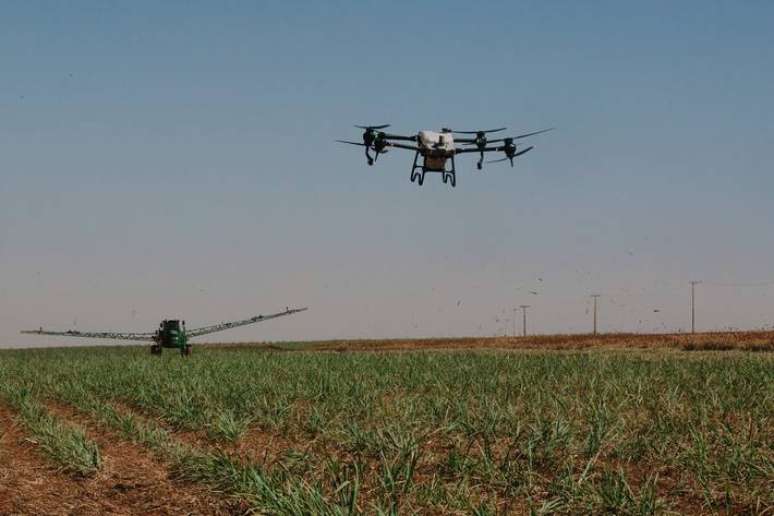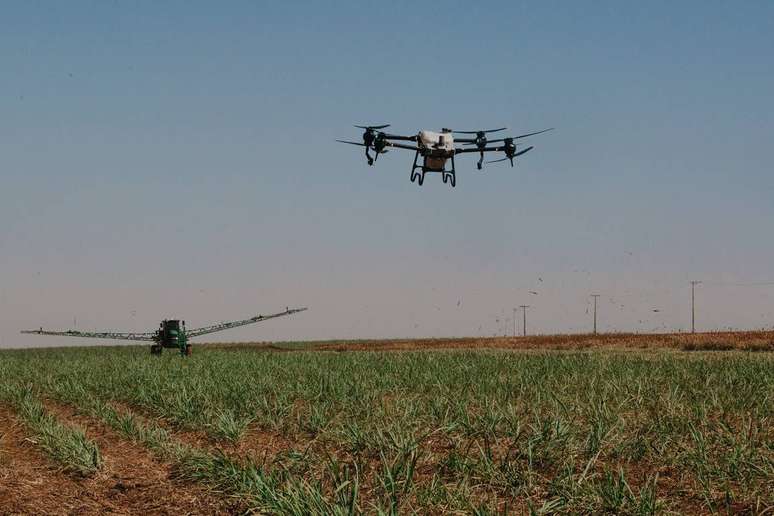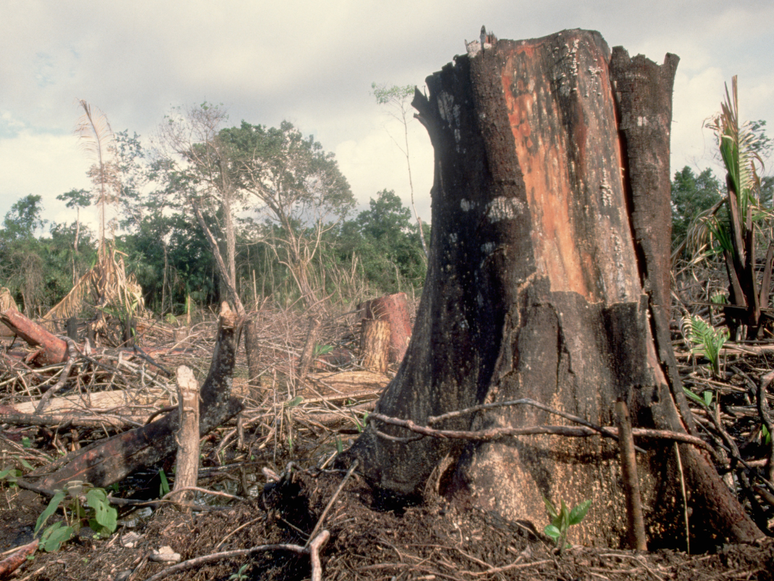A survey conducted by a researcher at the University of Brasilia says, however, that poor internet hinders more robust progress
A large study on the diffusion of agriculture digital in Brazil, created by researcher Maira de Souza Regis, from University of Brasilia (UnB), concluded that the adoption of digital technologies represents a path of no return for the rural sector, since, in addition to adding value to production, it guarantees greater environmental, social and economic sustainability to agricultural systems. According to the researcher, producers believe that digital agriculture also promotes sustainability reduce the risks inherent in agricultural production, in particular climate risks.
According to the study, the vast majority of rural producers are inclined to purchase machines and equipment with all the technology on board, as most already use monthly cash flow control programs and one part uses drones to generate vegetation maps. Use of property management software and applications is greatest in the Midwest, where it is adopted by 80% of manufacturers.
The region with the lowest usage, with 41%, is North East. Users of property management applications are mostly (80%) owners of large agricultural holdings, from 500 to 1 thousand hectares, and are also more likely to be part of experience exchange groups, to have hired technical consultants and to have a higher annual gross income.
The survey showed that the vast majority of producers (96.3%) use internet banking software and applications, 90.74% for climate forecasting, 90.71% for agricultural management and 70.37% for property management.
Also according to the survey, 64.81% of respondents use computer programs for annual planning and 62.96% use calculation programs to control cash flow. The survey also found that 59.26% of manufacturers use indicator tools to manage machines and properties, another 51.82% use telemetry for remote data transmission, 27.78% of them have drones for mapping vegetation or crop management and 14.81% use vegetation sensors.
A new generation of farmers, between 20 and 30 years old, are those who use agricultural management software the most, have a completed high school or postgraduate qualification and usually do not come from farming families. The main crops in which digital technology is present are above all cereals soy, corn, bean and sorghum.
There is also a strong relationship between the use of management software and the manufacturer’s interest in expanding his business, which obtains a gross annual income of between R$10 million and R$1 billion.
However, the adoption of digital technologies is also noticeable in properties with more than 100 hectares and 10 employees. “It can be concluded that farmers are aware of the benefits of digital agriculture and want to digitize their operations, as the main factors motivating its adoption are better cost control, better management and access to updated information” , says the researcher.
No network
The study finds that lack of internet in the countryside is identified as the main obstacle to digitalisation. According to the researcher, there is a lack of studies on the intensity of use of the main digital agriculture technologies to obtain a general picture of regional technological disparities, as well as a survey of the production areas that use digital technologies the most.
For Maira it is necessary to know whether, with the internet and the machines and equipment available, producers would be able to connect all agricultural production processes to obtain useful information for decision-making. Furthermore, the use of technological tools is not yet vertical.
“You can say that manufacturers use IT to do banking transactions, access weather forecasts and check price quotes. They use IT a lot for communication, but they don’t use it as often for system management of production because they do not clearly perceive the benefits of digital agriculture. There is still much to be done in other activities within agricultural production and, in addition to time, it is a process that requires guidance, technical monitoring and public policy incentives” , he has declared.
Opportunity
The great interest of Brazilian rural producers in adopting digital tools in the numerous stages of the production process has been noted the Cromai startup, founded six years ago and operates in the monitoring of crops such as sugar cane and soya based on artificial intelligence. “We have introduced an approach that provides relevant information for strategic analysis and crop management in an integrated and automated way, aiming for more assertive decision-making,” says the startup’s CEO, Guilherme Castro.
With more than 150 employees, the startup offers solutions for large sugarcane and soybean production groups, achieving results such as an average 65% reduction in the use of chemical inputs and water in plantations – which corroborates research findings that digital technology promotes sustainability.
According to Cromai, artificial intelligence tools generate information flows that make the use of pesticides more efficient. “Farmers apply only where needed, identifying crop needs through localized spraying software,” Castro said.
The startup, according to him, is aware of the great digitalization potential of Brazilian agriculture and is moving from sugarcane to other crops. “A little over a year ago we entered the soybean market, advancing into corn and cotton crops next year,” he said.
TO Agrishow held in May this year in Ribeirão Preto, Cromai was awarded the Agrishow Startup Award for its innovative model in the application of herbicides.

Source: Terra
Rose James is a Gossipify movie and series reviewer known for her in-depth analysis and unique perspective on the latest releases. With a background in film studies, she provides engaging and informative reviews, and keeps readers up to date with industry trends and emerging talents.







